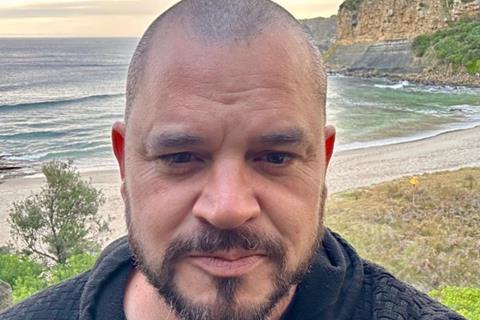The evangelist Carl Beech is living with young onset Parkinson’s disease. Here, listed in no particular order, are some of the lessons he’s been learning

Parkinson’s is currently incurable. It’s a degenerative and progressive brain disease. There have been many tough moments, and yet there has also been joy. Here are some of the lessons I’ve been learning since my diagnosis:
1. Gratitude. In Parkinson’s we are “on” or “off”. This is either when the meds are flowing, or they have run out. When I’m “off” my body starts to go rigid, slow, sore and I can’t speak properly. In fact there are up to 40 symptoms and while we don’t have them all, I have enough of them. When I switch back “on” it’s like coming alive again. I’m more grateful now for every breath and for the smallest of joys.
2. If you want to have a good theology of healing, you need a robust theology of suffering. Suffering can bring glory to God. By living joyfully you can show Christ’s strength. As Paul said, “When I’m weak he is strong.” (2 Corinthians 12:10)
3. Depend on God, not your abilities. I’m an evangelist. I’ve given talks to crowds large and small while stammering badly. My voice has been monotone and I’ve been unable to move well. Yet many still meet Christ. More than ever before, in fact. We don’t need to rely on devices and techniques. We need dependency on the Holy Spirit.
4. We need better teaching on healing. Some Christians cannot accept that we don’t all get healed. Some have shouted at me (on one occasion they were wearing glasses, which I found amusing ). Ironically, often those with this theology are the angriest and most insensitive people I meet. They think healing is a divine right. This is theological nonsense.
This tells me that the Western Church isn’t prepared for hardship and many disciples lack robustness. We need to work on this.
Being a faithful servant of Christ doesn’t give you some kind of heavenly diplomatic immunity against sickness. In fact some of us are perhaps called to a rutted path for God’s glory.
5. Joy is not dependant on circumstances. To be joyful does not require you to be fully healthy or “prosperous”. It’s a mindset issue. You can choose joy as much as you can choose to be grateful. I feel sad when I meet people who are constantly complaining. Complaint is such a thief of life.
6. Many of the things we get annoyed or upset about are actually trivial. I’ve learned to avoid drama llamas and disengage from trivial nonsense. I don’t have the time or bandwidth.
7. Humility. Due to my body movements and speech (when off) I have been treated as though I’m drunk or have additional needs. My strength is failing and I’m not as physically capable as I used to be. I’ve been humbled many times. I’ve learned that this is actually precious. Embrace these moments because they are formational.
8. Some people don’t know how to talk to me. Some avoid me or the subject. Weirdly I have to spend time reassuring and comforting others. Why? I suspect we have shielded ourselves in the West from pain and suffering - at our peril.
9. My mind is focussed on what’s important. This happens when you realise your life span is limited. For me, I know that one day I will be profoundly disabled (barring serious medical intervention/advances). That makes me live in the now. I wish I’d had that perspective when I was healthy. It’s something we should all seek after.
10. I’m not afraid of death, the future and what it might bring. Why? Because I have been reading the Bible for many years and really tried to live it. Turns out that Christ’s promise of being with us is actually true. I feel his presence more now than I did before. It’s also true that years of Bible reading strengthens you.
11. God can turn everything to good. I feel happier and have more joy and inner strength than ever before. I seem to hear from him more too.
12. Keep trusting. When I was diagnosed I asked God to spare my mind and my voice. I said to him that he could have all of me but please leave these things. My mind is sharp, but my voice is now problematic. Tears fell when it started to be a struggle. I’ve had many moments of frustration and sadness when I’ve tried to talk to my family and friends but found it hard. All I wanted was to be able to spread the word of God and tell my family I love them. However I’m not angry or afraid. Why? Because in all of this, God is good and Jesus loves me. I trusted my life into his hands at 18 and I’ll continue to do that at 52, albeit with perhaps a few battle scars and campaign medals. That, my friends, is all you need.





































2 Readers' comments